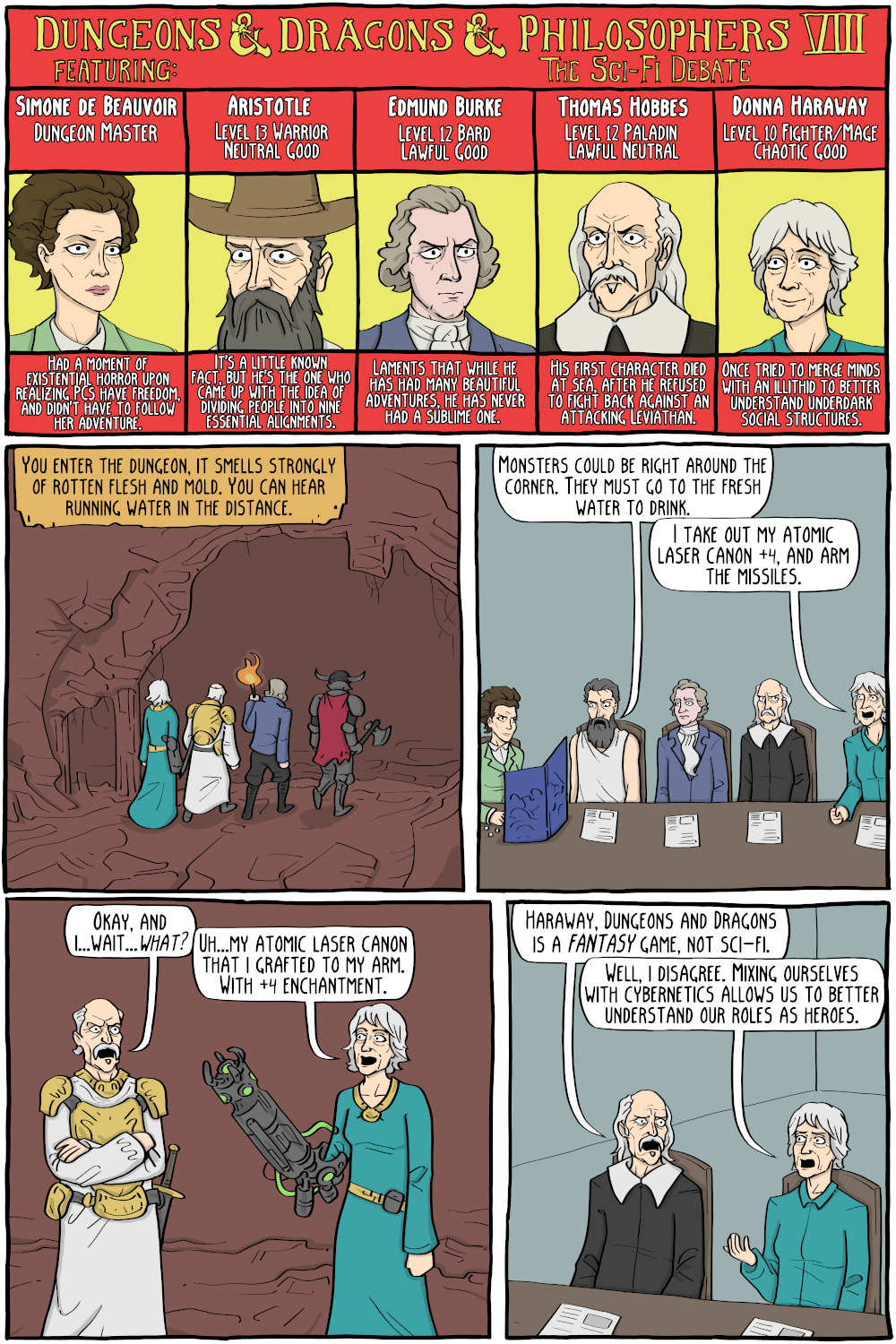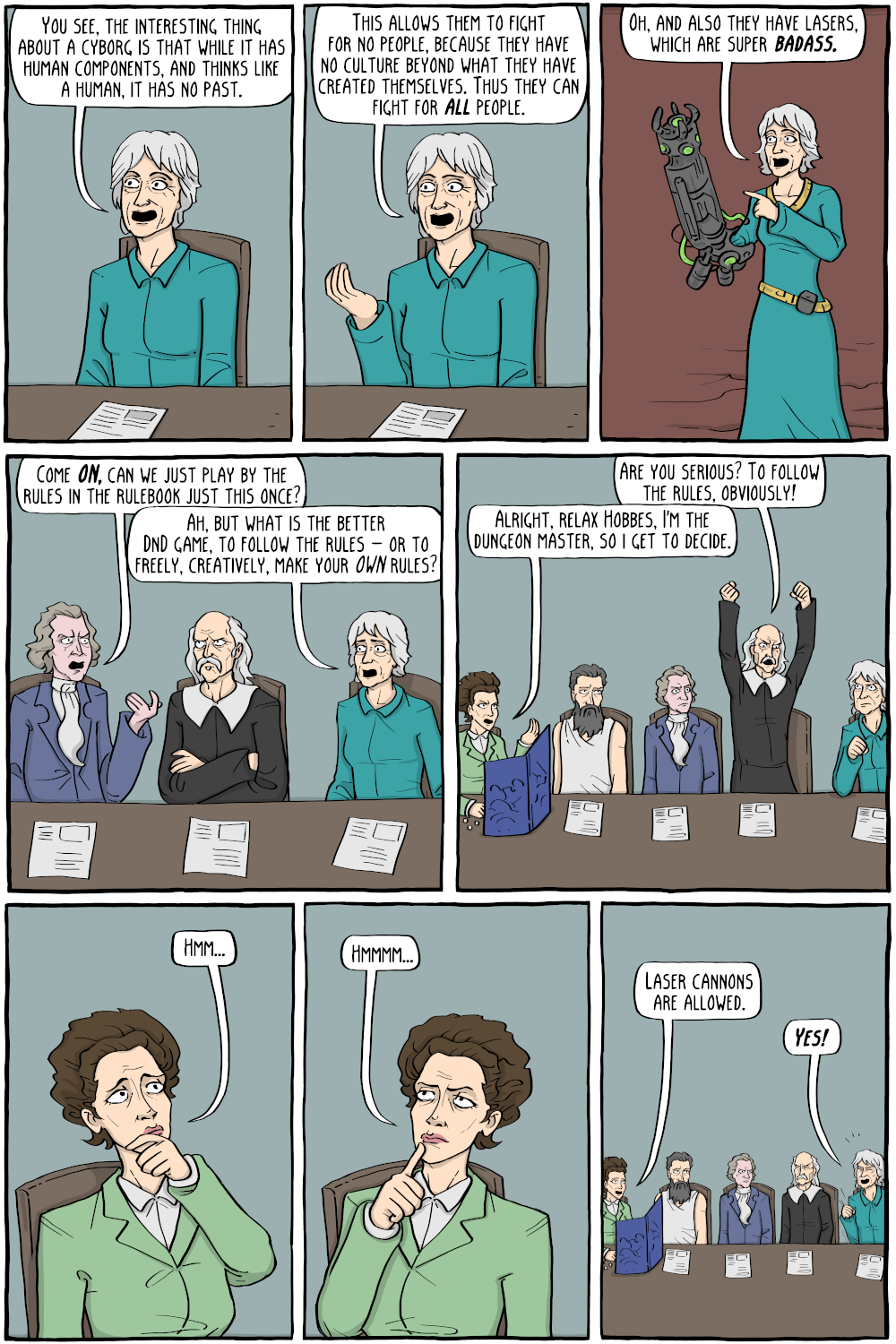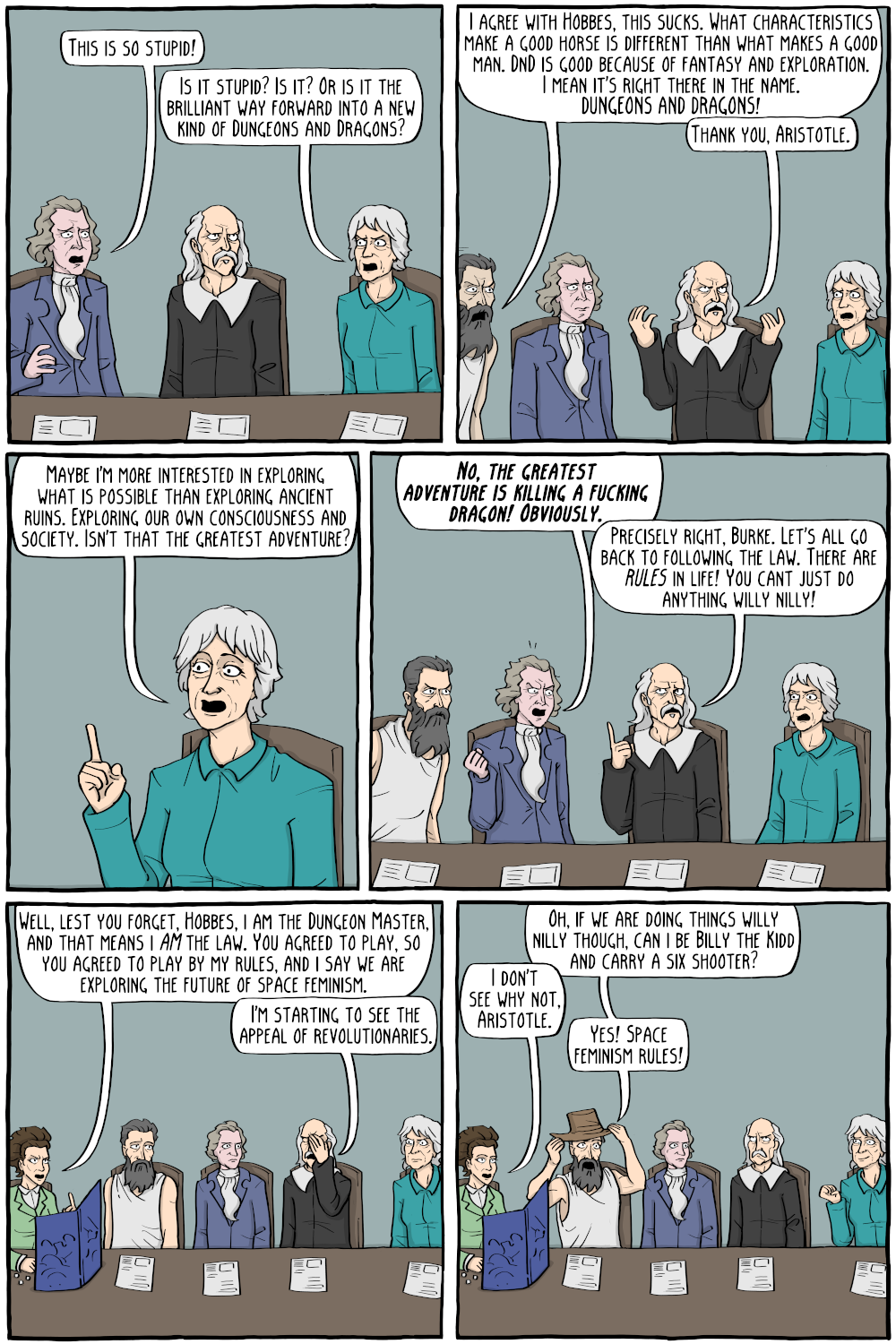


Donna Harroway is a feminist philosopher, who wrote "A Cyborg Manifesto", an essay which uses the metaphor of a cyborg thought experiment to critique traditional feminist "identity politics". She asks us to imagine a cyborg, neither machine or human, genderless, raceless, and without parents. Completely unrooted in historical social groups and tradition, the cyborg society is able to transcend our common politics of groups advocating for the goals of members which belong to any given identity. The Cyborg has no concrete identity.
So, rather than feminism advocating on behalf of "women", which is a set containing a group of individuals with that identity, it is a loose coalition of people with a certain affinities. Like the cyborg, no human being is merely one thing such as a "woman", a "worker", or a "black person". We are an amalgamation of multiple things, many of which are socially constructed or even freely chosen by our creative will, and she thought a politics of the future must reflect our "cyborg" nature.
Thomas Hobbes is best known for believing that we had to submit to a kind of social contract and obey the monarch in order to form society. Edmond Burke was a 18th century conservative thinker who believe we should only change society in small steps. Aristotle represents kind of the polar opposite to something like the Cyborg Manifesto, where he thought everything had an essential essence that represented its ideal form.
Permanent Link to this Comic: https://existentialcomics.com/comic/305
Support the comic on Patreon!










